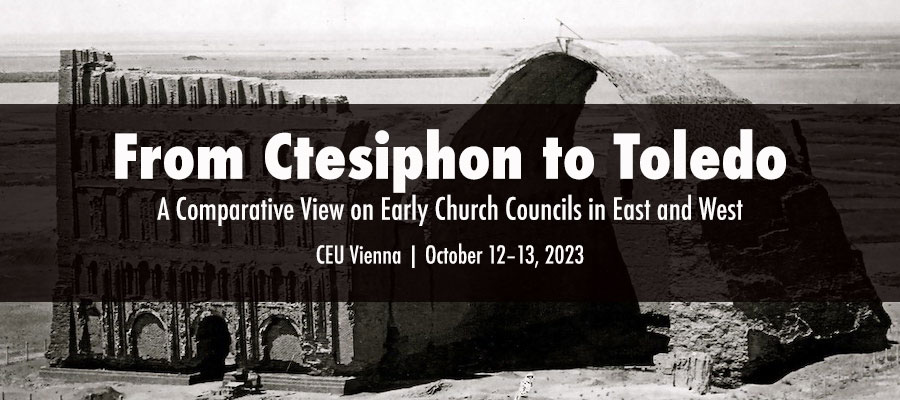From Ctesiphon to Toledo: A Comparative View on Early Church Councils in East and West, CEU Vienna, October 12–13, 2023
The 1700th anniversary of the Council of Nicaea in 325 is approaching, and the importance of the first ecumenical council for the doctrinal and institutional development of the Christian Churches is manifest. Unfortunately for historians, Nicaea itself remains badly documented, but in late antiquity church councils became one of the instruments for ruling the church. For some general church councils, such as the Council of Chalcedon in 451, even the minutes survive, and in recent years, many of these conciliar acts have been made available in translation. This has led to increased interests in church councils, and particularly during the last decades, not only theologians but also historians have started contextualizing conciliar texts.
The envisaged conference "From Ctesiphon to Toledo: A Comparative View on Early Church Councils in East and West" intends to make use of these scholarly achievements and invite colleagues to investigate late antique and early medieval councils with a more holistic approach. The Christian Roman Empire provided a different legal and organizational setting for the so-called ecumenical councils of the fourth to sixth centuries than the post-Roman Germanic kingdoms did for regional councils of the Visigothic and Frankish Churches or Sasanian Persia for councils of the Church of the East. The goal of the conference is to establish comparative perspectives on late antique and early medieval church councils in East and West up to the seventh century.
Possible topics are questions of procedures, such as the practical and organisational aspects of convening a council, and the identities of functionaries who took the notes and who composed the final minutes. Considering the very different frameworks in which these church councils operated – from a non-Christian empire (Sasanian Persia) via the Christian Roman empire to post-Roman Ariminian(/Arian) kingdoms – the question on whose authority the councils convened is another possible topic to address. Independent of the question if it was the emperor, the king or the metropolitan bishop, what were the reasons for convening a council? Were there specific patterns for summoning councils and how much did ecclesiastical politics play a role? How much then were political and theological aspects and agendas overlapping at church councils? Did bishops have the freedom to join or to stay away? Which ecclesiastical topics were discussed in regional councils and did the decisions differ in East and West?
Other innovative perspectives and questions are of course welcome.
